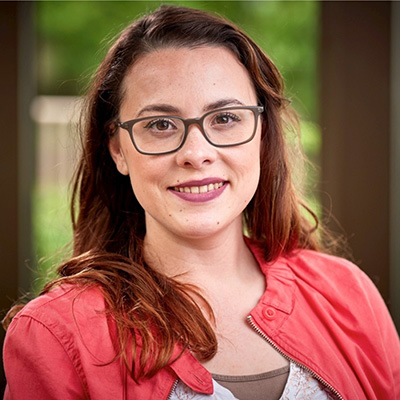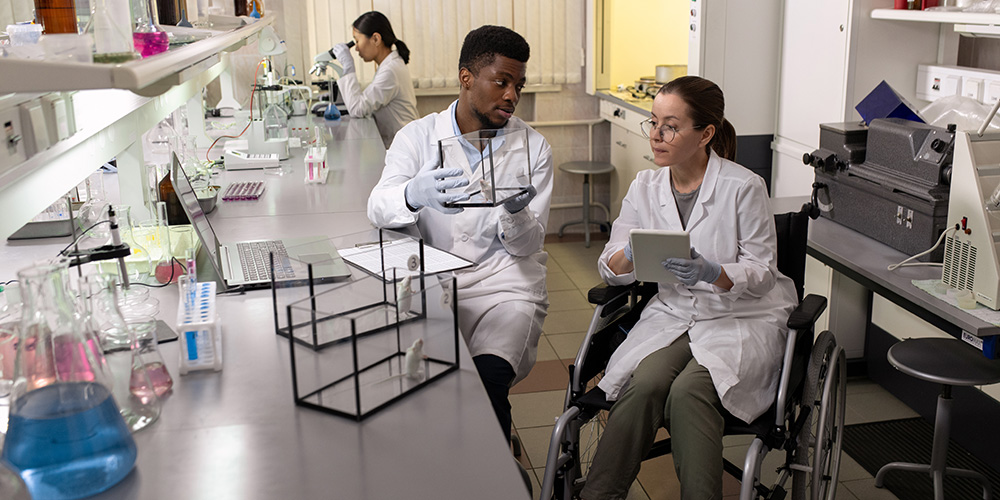How to get the accommodations you need in grad school
Graduate school can involve challenges of many kinds, from research experiments to qualifying exams to course work. Everyone has a different experience and faces different hurdles — you can lower some of these hurdles by getting the academic accommodations you need.
Graduate schools typically provide support and accommodations to ensure that the education they offer is accessible to all. Understanding who to talk to and when can be confusing, so this week I spoke to an expert to learn how the process works.

Nathalie Weissman is an access specialist within the office of student life disability services at Ohio State University. She answered key questions about accommodations in grad school. I have paraphrased most of her answers here.
What are accommodations?
Broadly speaking, accommodations are measures taken to ensure that a student can fully participate in their educational environment. They will vary from person to person based on their need and the educational program they are in. During grad school, accommodations may touch on various areas throughout the grad school experience — coursework, exams, dissertations, lab work and more.
What accommodations may be available to me in grad school?
“Accommodations are specific to students’ needs,” Weissman said.
Universities consider each case independently, and your university’s accessibility office should work with you to identify what accommodations you need and ensure they are implemented during course work, lab work and in other settings as needed. Your accommodations needs may also change throughout grad school, and your school should work with you to make sure you are supported throughout your studies.
Who should I reach out to about accommodations?
Your university’s webpage for accessibility is a good place to learn the basics about accommodations. The exact office names will vary among schools, but they may include educational support, disability services, accessibility or student life. If you’re already in touch with your graduate program coordinator or director, they may be able to point you in the right direction as well.
OSU requires students seeking accommodations to register online, Weissman said. Then, her office handles the official review of each request and gathers any necessary documentation.
Each school will have their own documentation guidelines for requesting accommodations, and students should look at the accessibility/disability services sites to review what may be necessary to apply for academic accommodations.
The office may also provide official communications and information for instructors, lab mentors or other personnel to explain the accommodations, but it might also be beneficial for you to reach out to key personnel on your own.
“We encourage students to speak with their faculty regarding accommodations,” Weissman said.

Is getting grad school accommodations different than the undergrad processes?
Weissman said the general process for seeking accommodations as a graduate student is the same as for undergraduate students, but the details may vary.
“Accommodations may have specific processes based on the graduate level program,” she said.
At OSU, grad students discuss these specific accommodations with the assigned access specialist. Programs may have different processes, but if you requested accommodations during your undergraduate studies, the process is probably similar for graduate school.
When should I ask about accommodations?
In general, reaching out early is a good idea to make sure everything is set before you start your program. At some universities, students can register for accommodations before they start classes. For students starting in the fall, appointments to discuss the details may start in the summer or right before classes are slated to start.
At OSU, Weissman said she recommends that students reach out to their office as soon as they enroll, although they can register and request accommodations at any point throughout their time there.
Enjoy reading ASBMB Today?
Become a member to receive the print edition four times a year and the digital edition monthly.
Learn moreFeatured jobs
from the ASBMB career center
Get the latest from ASBMB Today
Enter your email address, and we’ll send you a weekly email with recent articles, interviews and more.
Latest in Careers
Careers highlights or most popular articles

Embrace your neurodivergence and flourish in college
This guide offers practical advice on setting yourself up for success — learn how to leverage campus resources, work with professors and embrace your strengths.

Upcoming opportunities
Apply for the ASBMB Interactive Mentoring Activities for Grantsmanship Enhancement grant writing workshop by April 15.

Quieting the static: Building inclusive STEM classrooms
Christin Monroe, an assistant professor of chemistry at Landmark College, offers practical tips to help educators make their classrooms more accessible to neurodivergent scientists.

Unraveling oncogenesis: What makes cancer tick?
Learn about the ASBMB 2025 symposium on oncogenic hubs: chromatin regulatory and transcriptional complexes in cancer.

Exploring lipid metabolism: A journey through time and innovation
Recent lipid metabolism research has unveiled critical insights into lipid–protein interactions, offering potential therapeutic targets for metabolic and neurodegenerative diseases. Check out the latest in lipid science at the ASBMB annual meeting.

Hidden strengths of an autistic scientist
Navigating the world of scientific research as an autistic scientist comes with unique challenges —microaggressions, communication hurdles and the constant pressure to conform to social norms, postbaccalaureate student Taylor Stolberg writes.

